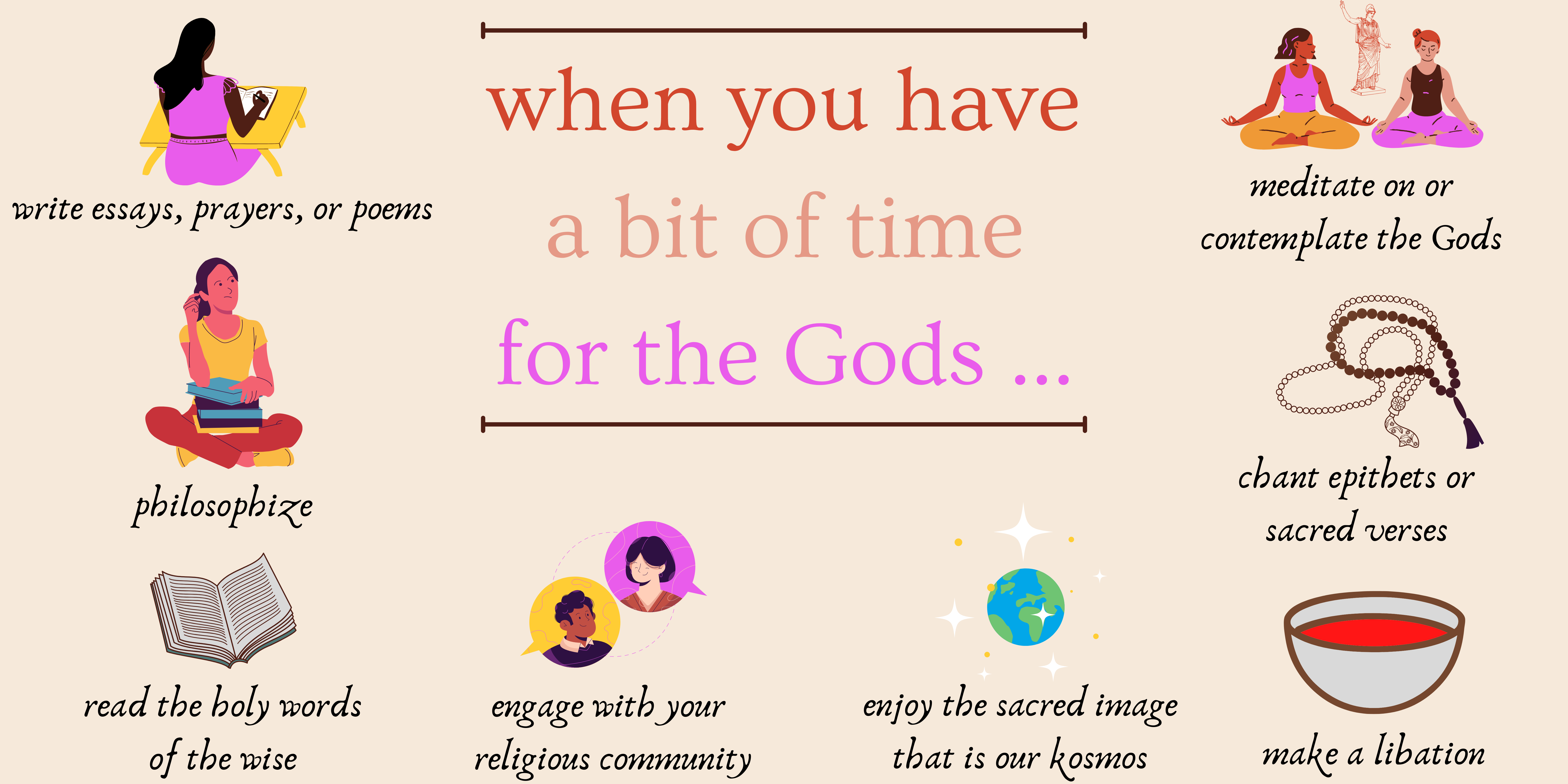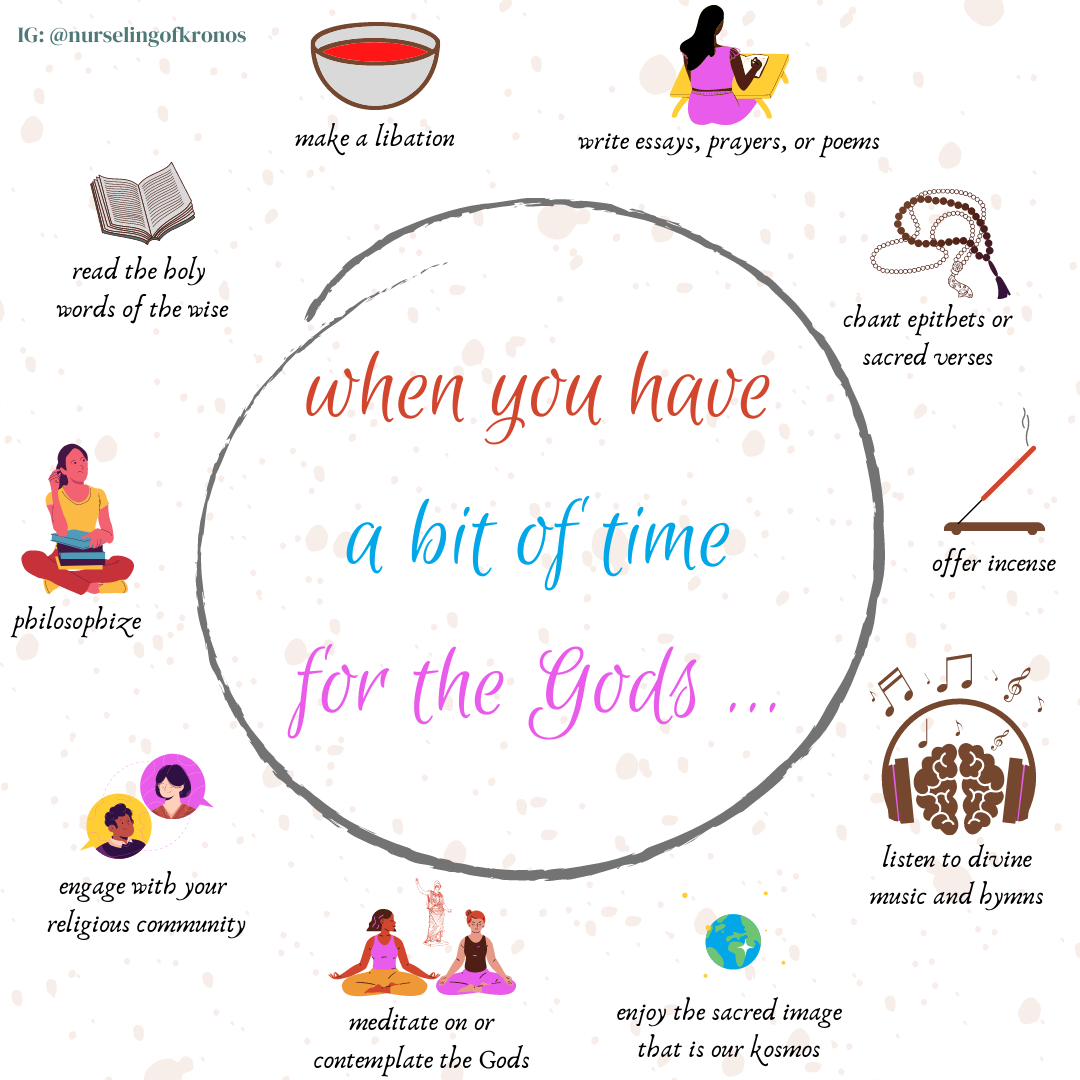
You don’t have to be a mystic or super-religious to worship the Gods. A polytheistic mindset is one that affirms the existence of many Gods, whether you’re a Platonist with a sophisticated sense of how the divine unfolds from the One or a Stoic with your Zeusizing cosmology (I’m not a Stoic so don’t quote me on that) or a practitioner who is less interested in specific philosophical systems and more interested in the Gods and the world around us.
There are many people who are uncertain of how to approach life from a polytheistic mindset without that deep dive into being super-religious. This can occasionally lead to the idea that there is a binary opposition between devout people and aesthetic-driven atheists. Some people definitely like the idea or the aesthetic of polytheism, but have not yet made the leap into figuring out why they hunger for it so much because they still associate some aspects of polytheism with negative hype from mass media (especially with the way polytheisms are used as horror movie tropes and the often-sordid mythological retellings). Others may be actual theists, especially those who grew up with Neopagan parents, but are now out of the nest and are dealing with managing their own households, so religious activity has taken a backseat to taking care of kids or stressing out about a work project or trying to balance work and volunteerism. The truth is that many people who affirm that there are Gods still struggle with finding basic ways to integrate religious activity into their lives, so religious behavior may lie along a spectrum even for the wholly theistic.
Polytheistic worship can be as simple as lighting a candle and chanting to a God for five minutes before you rush out the door, libating some of your water to the nymphs and Pan during a forest hike, or swiping through sacred texts while reading on your phone during a commute.
The graphic above gives some ideas, but I’m going to write out a bulleted list, too, for anyone who needs it.
- Write essays, prayers, or poems.
- Philosophize.
- Read the holy words of the wise.
- Engage with your religious community.
- Enjoy the sacred image that is our Kosmos.
- Make a libation.
- Chant epithets or sacred verses.
- Meditate on or contemplate the Gods.
To provide further guidance, “read the holy words of the wise” could refer to anything from polytheistic philosophical texts to hymn translations to original modern works/treatises on the Gods. There are also many chants that people are developing — unfortunately, this is difficult to Google because the results are so crowded. I often do a chant for Apollon or a chant adapted from the Chaldean Oracles. Enjoying the world around us can range from briefly acknowledging a lunar Goddess when you see the Moon to contemplating the Gods while out hiking or walking through a park.
Not included in the image or bulleted list was listening to sacred music. Daemonia Nymphe and others are setting hymns to music, and they create very lovely compositions. I did make a follow-up Instagram infographic, though, that includes it!

For ritual practice (and more details on libations), see this post on how to pray in under 5 minutes, another one on a 10-15 minute practice, and an infographic that duplicates the content.
📿

This is lovely! There’s a huge lack of infographics for polytheists. If there’s one thing I remember from my previous job in adult education, it’s that the more methods we use to make information accessible (infographics, audio-based media like podcasts, etc), the better it is for our communities.
LikeLiked by 3 people
Thank you! I agree — the more the merrier when it comes to selecting media for passing along religious education messages. 😁
LikeLiked by 1 person
This is so true… I should consider making some!
LikeLiked by 2 people
Oh please do, that’d look lovely in your style!
LikeLiked by 1 person